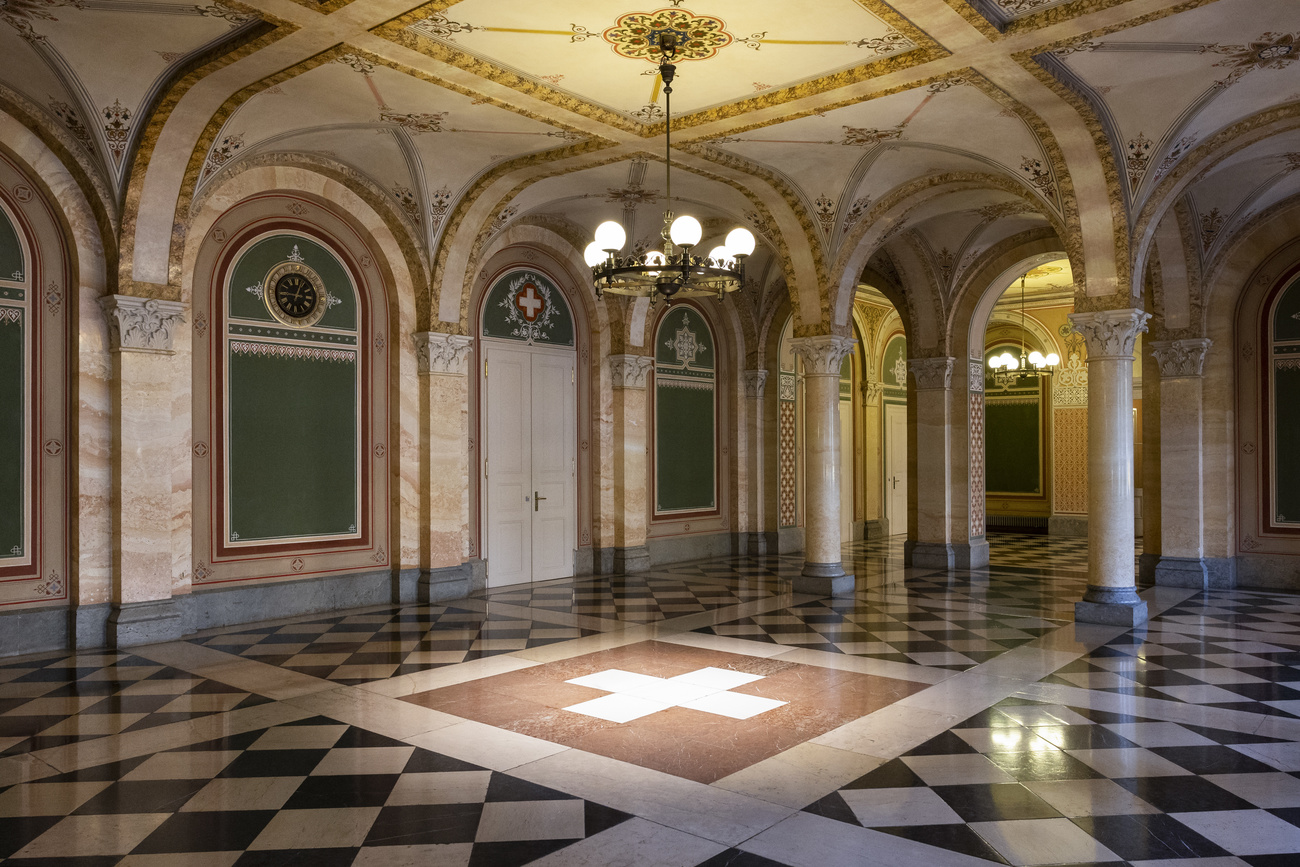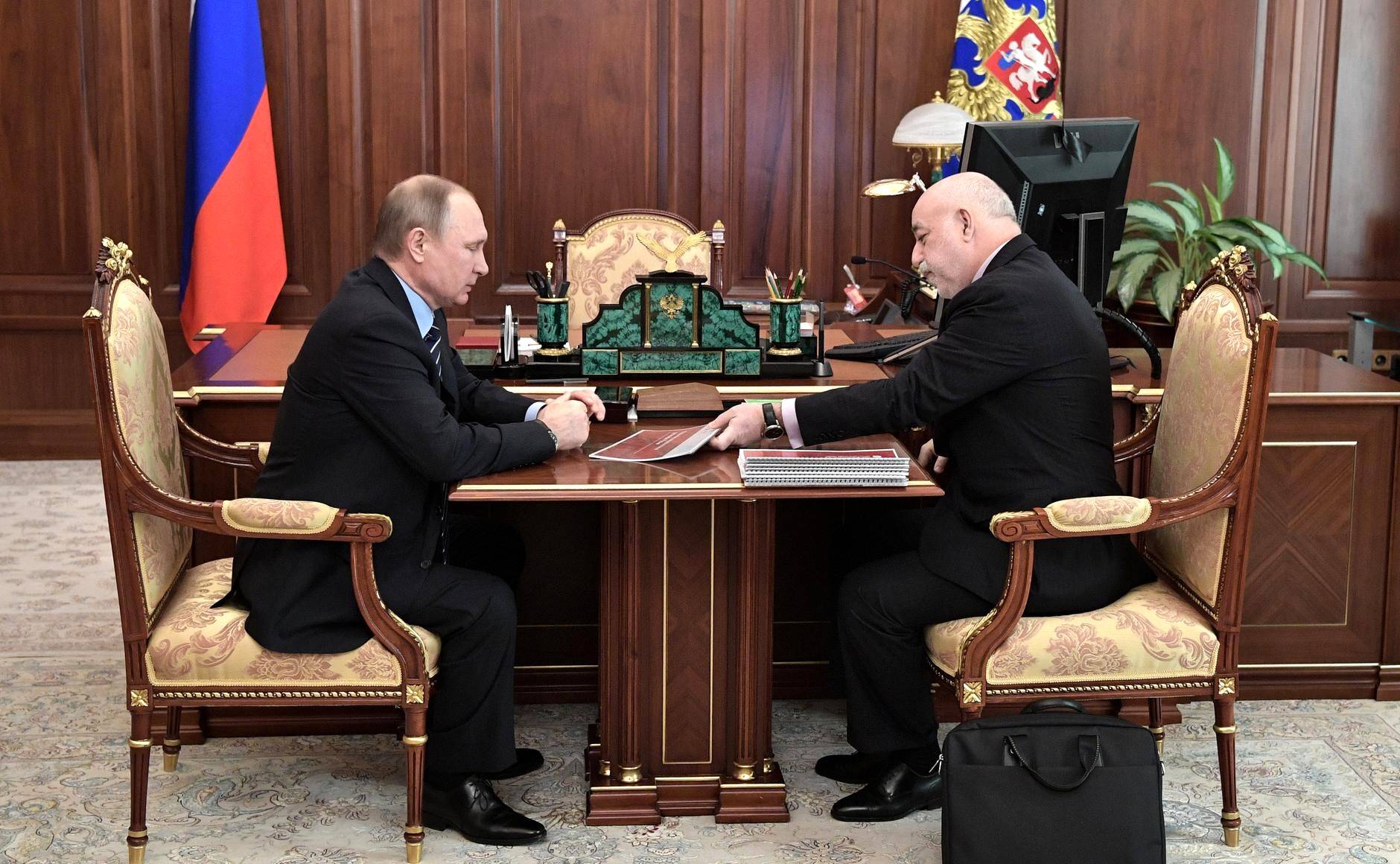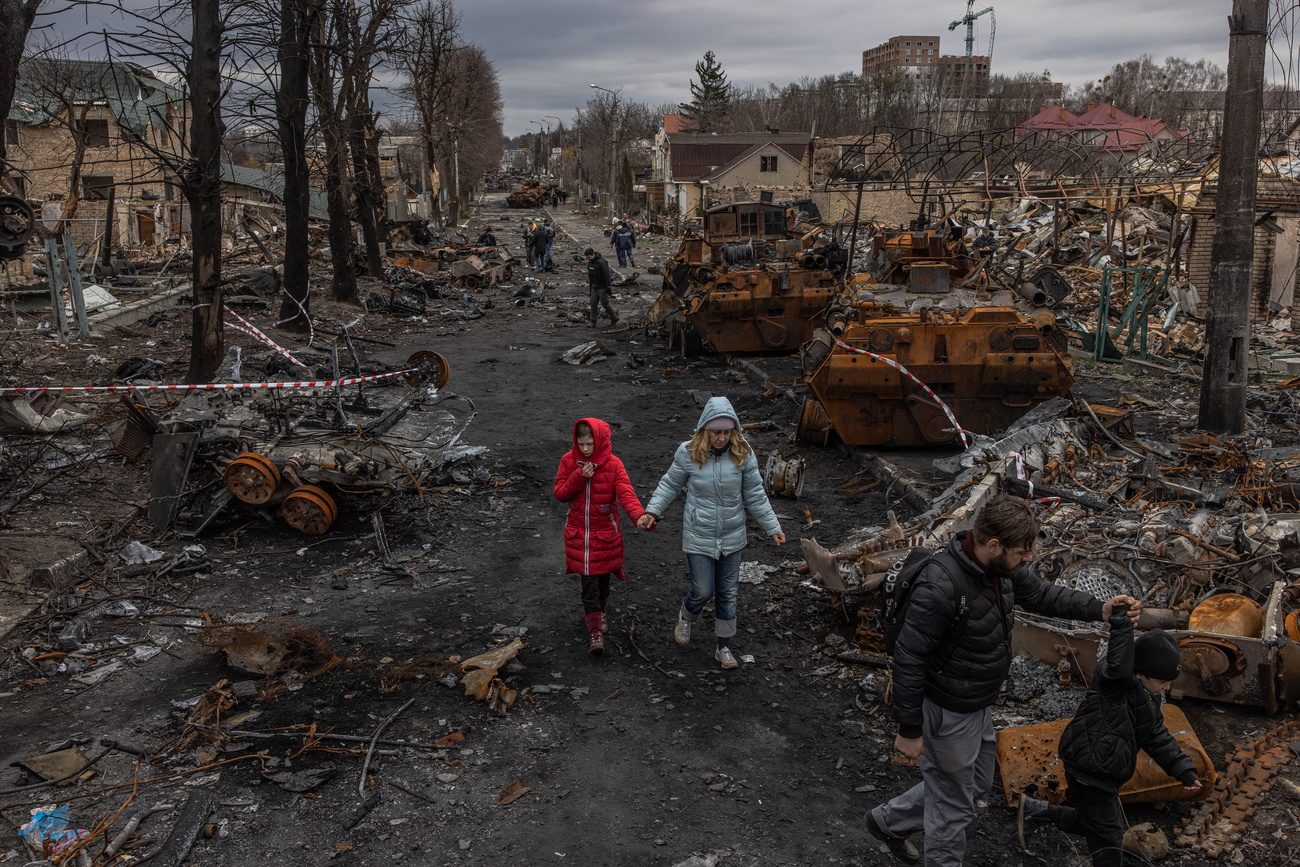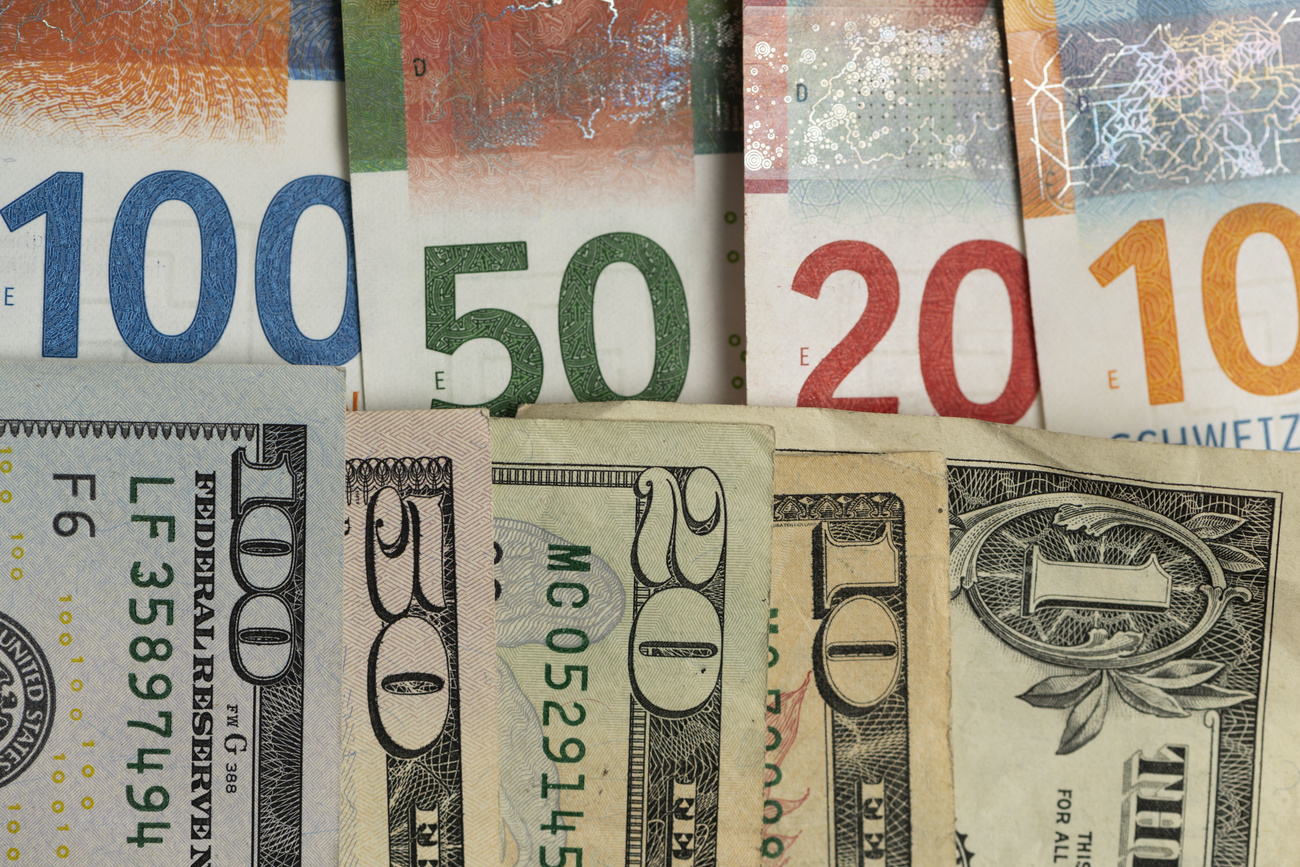The riddle of Russian money in Switzerland

There’s a well-worn Swiss bankers joke about the venality of a particular country. The actual country changes with the times but since this is April 2022, it starts like this: “Where is the capital of Russia?”
You can guess the punchline.
Two months into Vladimir Putin’s brutal war of aggression in Ukraine, however, what is remarkable is just how little Russian capital actually seems to be in the Alps. Neutral, inscrutable Switzerland was, perhaps more than any other country, presumed to be the treasure house of the Putin kleptocracy.

But despite Bern having mirrored all of the US and EU sanctions against Russian oligarchs – measures that apply to around 900 people globally – just $8 billion (CHF7.7 billion) of Russian assets in the country have so far been frozen.
Consider, by comparison, that the channel island of Jersey alone has frozen $7 billion of assets linked to a single Russian tycoon, Roman Abramovich.
For the Swiss government, this reflects the fact that applying such a sweeping set of sanctions is a work in progress.
“It’s very difficult to determine the effective control of the assets,” Erwin Bollinger, a senior official at the Swiss State Secretariat of Economic Affairs (SECO), said at a briefing last month. The total is likely to tick up, he added, as banks work hard to try to trace their clients’ wealth. “The amount reported is a snapshot.”
To put the low official figure of sanctioned funds into context, the Swiss Bankers Association has estimated that in total around CHF150-200 billion ($155-207 billion) of Russian money is held by Swiss banks.
Rush to fall into line
So surely there will be more asset-freezes to come? Not many Swiss bankers themselves seem to think so.
For the biggest, and most international banking houses, there has been a rush to fall into line and apply the most stringent interpretations of the rules as quickly as possible. The risk of a bruising encounter with US authorities at some point in the future, for the sake of turning a blind eye to Russian clients’ money now, is not one worth taking, they reason.

More
Ukraine urges Switzerland to clamp down on Russian money
At UBS, the bank’s executive team was holding twice daily conference calls in February and March on the progress of applying sanctions to their client book. The more secretive, privately owned private banks have less fear of Washington. But they too say they’ve frozen what they can.
The issue, said one Geneva-based banker over a recent drink, is twofold: first, assets are not often held directly in clients’ names. The legal complexities around that are not just fiendish, but often quite innocent, as when money is held by family members. Second, he said, money is very rarely kept in structures in Switzerland.
In Zurich, another banker explained: “We’ve been advising clients not to use Swiss trusts for years – not for political reasons at all but just because they are easier [to use]. All the money is offshore.”
‘It’s all gone to Dubai!’
So much for the half-innocent explanations. And the bad? Well, how much notice did you need that the West might be coming after your cash? Russia’s at-risk oligarchy has had the better part of eight years to prepare since the invasion of Crimea.
The well-paid Swiss lawyers and bankers of the Russian rich who, historically, used Geneva and Zurich as their financial clearing houses have, as a result, hardly sat still in helping them shift wealth into the hands of relatives, layers of obscure trusts, or out of the country altogether.
When Putin began to mass his troops on the borders of Ukraine, that process only speeded up. Back in early February, a world still somewhat sceptical about US intelligence claims that Putin would invade his neighbour could perhaps have done worse than look at the billed hours of Genevois notaries for supporting evidence.
“It’s all gone to Dubai!” joked the banker from Geneva by the time we’d opened a second bottle of wine. Swiss banks, of course, have vital information and intelligence on this great squirrelling of wealth.
But they continue to make unhelpful partners for law enforcement because of the extremely strict banking secrecy laws that still – with great national pride – exist in Switzerland. Without evidence of clear suspected criminality, Swiss bankers must protect clients’ secrecy at all costs.
The wealth that has, in such circumstances, remained under the purview of Swiss institutions, linked directly by name to those sanctioned is oligarchs’ loose change, or, if you will, the holiday kitty – for the inevitable season in Gstaad, shopping spell at Piaget or detox at Clinique La Prairie.
Amid slim pickings, it is not, therefore, surprising that the highest-profile asset seized in Switzerland of the $8 billion haul is a three-bedroom apartment on a golf course, belonging to Pyotr Aven. Hardly Xanadu.
Copyright The Financial Times Limited 2022

More
Meet the oligarchs: Switzerland’s awkward guests

In compliance with the JTI standards
More: SWI swissinfo.ch certified by the Journalism Trust Initiative











You can find an overview of ongoing debates with our journalists here . Please join us!
If you want to start a conversation about a topic raised in this article or want to report factual errors, email us at english@swissinfo.ch.